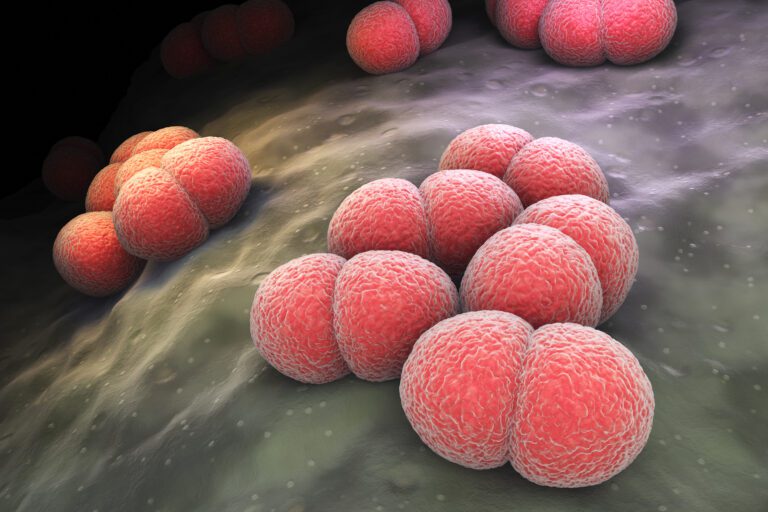STD Prevention Strategies: Tips for Protecting Yourself and Your Partners
Sexually transmitted diseases (STDs) are a significant public health concern that affects millions of people worldwide. These infections are spread through sexual contact, including vaginal, oral, and anal sex, and can have severe consequences such as infertility, cancer, and other life-threatening conditions. However, there are many strategies that individuals can use to protect themselves and their partners from STDs. In this blog, we will discuss some of the most effective STD prevention strategies, including STD testing, safe sex practices, vaccinations, partner selection, and abstinence.

STD Testing
Testing for STDs is one of the most effective ways to prevent the spread of STDs. Getting tested is critical since some STDs don’t show symptoms and can spread unknowingly. It is recommended that sexually active individuals get tested for STDs at least once a year, and more frequently if they have multiple partners or engage in unprotected sex. Testing is quick, easy, and confidential, and individuals can get tested at their doctor’s office, clinics, or community health centers. Online services also offer at-home STD testing kits that people can use.
Safe Sex Practices
Another effective way to prevent the spread of STDs is to practice safe sex. Using condoms or other barrier methods during sexual activity is a key part of safe sex practices. Condoms are highly effective at preventing the spread of most STDs, including HIV, chlamydia, and gonorrhea. However, they are less effective at preventing the spread of herpes and human papillomavirus (HPV). It’s important to communicate openly and honestly with sexual partners about sexual history and any potential STD testing and risks. It’s also essential to know that some STDs can be transmitted through oral sex and anal sex. Using barriers like dental dams and gloves can help reduce the risk of spreading infections during these activities.
Vaccinations
Some STDs can be prevented with vaccinations. For instance, the HPV vaccine is recommended for both boys and girls starting at age 11 or 12. The HPV vaccine can protect against several strains of HPV that can cause genital warts and cervical cancer. Other STD vaccinations include the hepatitis B vaccine and the herpes zoster vaccine. Vaccinations are a crucial part of STD prevention and can help protect individuals from serious health complications associated with these infections.

Partner Selection
Choosing sexual partners carefully is another effective way to prevent the spread of STDs. It’s essential to choose partners who have been tested for STDs and are honest about their sexual history. It’s also vital to avoid sexual activity with partners who have active STD symptoms or who have recently been diagnosed with an STD. Additionally, it’s important to use caution when engaging in sexual activity with someone with a history of unprotected sex with multiple partners.
Abstinence
Abstinence is the most effective way to prevent the spread of STDs. Abstinence means avoiding all sexual activity, including oral, vaginal, and anal sex. While abstinence may not be practical or desirable for everyone, it is a viable option for individuals who want to avoid the risks associated with sexual activity. It’s also an effective way to reduce the risk of unintended pregnancies.
Education and Awareness
Education and awareness are also critical in preventing the spread of STDs. This includes educating yourself about the risks and symptoms of STDs, as well as educating your sexual partners about safe sex practices and the importance of testing. It’s also essential to talk openly and honestly with healthcare providers about any concerns or questions you may have about STD prevention and treatment. Education and awareness help individuals make informed decisions about their sexual health and reduce the risk of transmitting infections to others.
Conclusion
STDs are a significant public health concern that can have devastating consequences. However, there are many strategies that individuals can use to protect themselves and their partners from STDs. These include STD testing, safe sex practices, vaccinations, partner selection, abstinence, education, and awareness. By utilizing these prevention strategies, individuals can reduce the risk of contracting and spreading STDs, which will help protect their health and the health of their partners.
It’s important to note that STD prevention is a shared responsibility. It’s essential to communicate openly and honestly with sexual partners about STD risks and to encourage them to get tested regularly. It’s also crucial to use barriers like condoms during sexual activity and to avoid sexual activity with partners who have active STD symptoms or who have recently been diagnosed with an STD. Additionally, education and awareness are essential in reducing the stigma associated with STDs and promoting safe and healthy sexual behavior.
Related Tag: STD Clinic Jacksonville FL






